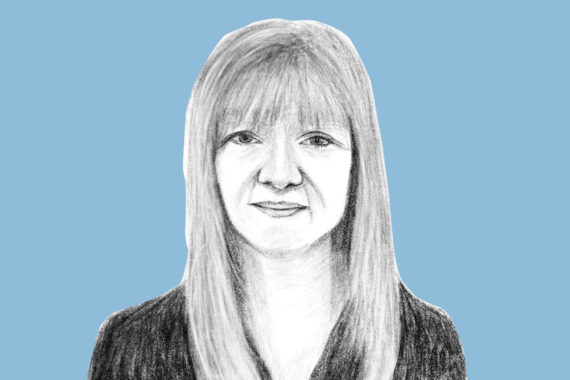New year, new GP retention plan?

Columnist Dr Zoe Rog wonders whether progress will be made this year on retaining the GPs who want to work but can no longer cope with their increasing workload
I was chatting to my sister recently, and the subject turned to our jobs. She asked me: ‘Do you get up in the morning and look forward to going to work?’
I reflected on this question and realised that I really do love the fundamental nature of my job just as much as I always have. When the consultation room door closes, I relish those precious few minutes when nothing else exists apart from me and the patient. Using that short amount of time to really listen and understand, as well as explore the unique dimensions of physical, emotional and contextual details to reach the best possible plan for that individual, never loses its appeal. It is a sheer privilege to have the training, experience and opportunity to be able to do it on a daily basis.
I also feel lucky to work with a team of talented and dedicated individuals. I enjoy the exhilaration of the challenges and successes of running a GP practice. Being able to witness the combination of our ideas, passion and hard work improve processes and population health is extremely satisfying.
Unfortunately, as I went on to explain to my sister, there is a ‘but’. The job is great, but there is just too much of it. In an attempt to keep on top of things, I usually log on to the work computer system on Sunday afternoons to clear all the pathology results, documents, prescriptions, task messages, report requests and any emails that have found their way into my inboxes since Friday afternoon.
Don’t get me wrong, I arrive at work on a Monday morning looking forward to seeing my patients and colleagues. However, after 12 hours of battling my way through not only the appointments and visits but also the interruptions, door knocks, screen messages, notes pushed under the door, trainee and ARRS staff debriefs, meetings, other staff coming for advice, and those can-you-just requests, I find myself exhausted at my desk as the doors are locked at 6.30pm, wondering: where could all the new pathology results, documents, prescriptions, task messages, report requests and emails have possibly come from?
Like many GPs, I have adjusted my number of working sessions over the years, and I spend my ‘days off’ catching up with all of this administration as well as the audit, policy writing, practice management, and continuing professional development that the job requires. But even so I am constantly frustrated by the quality improvement ideas and less urgent work that are repeatedly pushed to the bottom of my to-do pile by all the other work that lands on top.
All of which leaves me wondering how long I will be able to continue to do the job. I am not necessarily someone who would choose to retire at a particular age; I want to remain useful and with an active brain, and I would hope that as I continue to gain even more experience that this might be a valuable commodity to the NHS. Somehow the job that I love has turned into some kind of strange endurance sport that can’t be reduced to fit inside a normal life or carried out with anything less than perfect health.
Meanwhile, I think of all the evening engagements I turn down, the excuses I make to my husband and children about the things we will do as soon as I get my work done, the conversations with my mum and sister that don’t happen often enough, not to mention the ‘maybe next year’ messages I wrote in my Christmas cards again last month.
As we look forward into 2024, a general election year, the question remains: what can be done to retain those of us who, like me, love this job, but don’t know how much longer they will be lucky enough to continue to do it?
Dr Zoe Rog is a GP in Runcorn, Cheshire
Pulse October survey
Take our July 2025 survey to potentially win £1.000 worth of tokens

Related Articles
READERS' COMMENTS [5]
Please note, only GPs are permitted to add comments to articles











Just to think ,all those years ago, how proud I was to have got a place at Medical School————–but now?
Thank you Zoe for so eloquently expressing the feelings of many of the colleagues I speak to. Time to get the message across to leaders and politicians without it sounding like a massive wingefest that we love our jobs, it’s just no longer compatible with having a life outside.
Zoe, did you read my mind? I am in exactly the place you are in but have taken that step in making a decision to retire. I have done it with a heavy heart because as you say I really enjoy the fundamental challenge of listening to a patient and sort/solve the issue.
I reckon you can do all that, and do it well, and fit it into 9-5 Monday thru Friday, IF you drop to 4 clinical sessions, and spend the remaining 3 days on all the other stuff. That’s what I did. Never enjoyed work so much, AND I have time to enjoy commenting here!
I’m with Dr No and do 4 clinical sessions and love that work now with other roles in the rest of the week. It’s a great job in terms of being able to problem solve, use brain and connect with people but the amount of work expected is unreal. sorry to say often in my area these are expectations by partners of their salaried staff while the parters have significantly reduced their own patient contact. Because of this the partners appear unaware of just how complex each consultation has become now with other staff hoovering up the less complex cases